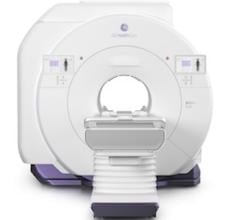
March 9, 2012 — Residency training requirements in competencies related to radiology business practice and healthcare policy have been in place for more than a decade. However, a recent study published in the March issue of the Journal of the American College of Radiology, suggests curricula addressing these items still seems to be in a stage of acceptance and development.
“The United States has been experiencing a period of rapid changes in healthcare delivery and financing. Institutions and individuals have been repeatedly challenged to successfully adapt to the accelerating technological, professional and competitive pressures of the dynamic U.S. healthcare marketplace. Nowhere is this more true than within diagnostic imaging,” said Jonathan R. Medverd, M.D., lead author of the study.
Three anonymous surveys were distributed, including an e-mail survey to the membership of the American College of Radiology (ACR) Resident and Fellow Section (RFS), a paper survey to ACR RFS delegates attending the 2010 ACR meeting and Chapter Leadership Conference, and an email survey to the membership of the Association of Program Directors in Radiology (APDR).
Members of the APDR and RFS agreed that understanding and competency in business practice and health care policy topics was important to the future careers of residents. Most survey respondents’ home institutions offer some form of a non-interpretive curriculum, but the breadth of topics addressed and educational time devoted to these curricula were quite variable. Subjective effectiveness of curricula was most often rated as moderately effective by 45 percent of APDR respondents and 52 percent of RFS respondents, but infrequently rated as very effective — 12 percent and 6 percent of respondents, respectively.
“National accrediting authorities, radiology program directors and radiology residents and fellows all value business practice and health care policy education, but our data on the perceived effectiveness of individual program educational efforts suggest that current curricula, although providing value, may be suboptimal when present,” said Medverd. “Further commitment to and innovation within these curricula are requisite in educating our future radiologists.”
For more information: www.acr.org


 February 20, 2026
February 20, 2026 









